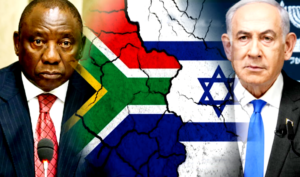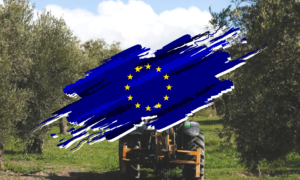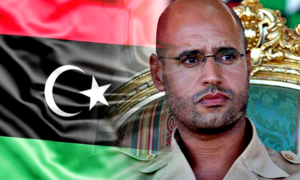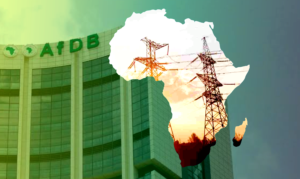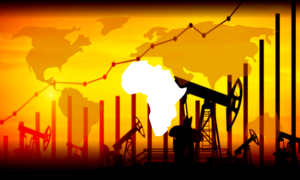Trump’s Sanctions Gambit on Moscow: Frustration, Diplomacy and the Politics of Pressure on Putin
From Washington, it was a line that seemed to capture both fatigue and resolve. “Every time I speak to Vladimir, I have good conversations, and then they don’t go anywhere” – President Donald Trump told reporters this week, moments after announcing sweeping new sanctions against Russia’s two largest oil giants, Rosneft and Lukoil.
The move marks a sharp turn in Trump’s approach to Moscow and a rare moment of convergence with America’s European allies. For months, the president had resisted calls from Congress and Kyiv to escalate economic pressure on Russia, arguing that sanctions would only hurt global markets and diplomacy. Now, with talks at a standstill and Putin unmoved, Trump says “it was time.”
![]()
The sanctions, unveiled by the US Treasury on Thursday, target the heart of Russia’s energy industry, aiming to limit the country’s global oil revenues and its ability to finance the war in Ukraine. Treasury Secretary Scott Bessent described the measures as a necessary escalation to counter Putin’s refusal to end this senseless war, accusing Rosneft and Lukoil of bankrolling the Kremlin’s war machine.
The Kremlin swiftly dismissed the move, claiming Russia was immune to Western sanctions. Yet analysts say the symbolism may matter more than the immediate economic toll.
Fiona Watkins, a political analyst with the Eurasia Policy Forum noted that – “it’s less about crippling Russia, but signaling a shift that Washington is done waiting. Trump’s patience has clearly ran out.”
The decision also effectively freezes what had been Trump’s most ambitious and controversial diplomatic initiative: direct peace talks with Vladimir Putin. A planned meeting between the two leaders in Budapest has been shelved indefinitely, the White House confirmed.
Trump had invested months in the back-channel effort, pitching himself as a dealmaker who could end the three-and-a-half-year war that has upended global energy markets and fractured alliances. But insiders say the talks yielded little beyond photo opportunities and vague promises. The US president wanted to be the president who will end the war. But the Russians aren’t ready to make concessions, and Ukraine isn’t willing to accept half-measures.”
Trump’s sanction follows similar actions in Europe. Just days earlier, the United Kingdom sanctioned Rosneft and Lukoil, while the European Union announced a ban on Russian liquefied natural gas imports beginning in 2027. These sanctions are appear slow, but they steadily tightening Moscow’s economic space.
In clear depiction of President Donald Trump’s act, aligning with Europe represents an unexpected modification of business fronts with Moscow. He had previously argued that sanctions were pointless unless Europe stops buying Russian oil, a position that often put him at odds with NATO allies. But as Europe’s own patience waned, Trump’s stance hardened.
The move also answers growing pressure from Ukraine’s President Volodymyr Zelensky, who has long urged Washington to hit Russia’s energy exports harder. Calling the sanctions a good signal, Zelensky said he hoped the measures would push others to act and bring the warring sides closer to a ceasefire.
![]()
On Capitol Hill, lawmakers from both parties cautiously welcomed the announcement. “It’s long overdue. Putin only respects strength”. said Senator Maria Whitaker, a Republican foreign policy hawk.
Still, some within Trump’s political circle see risk in the timing. With an election year looming and inflation still sensitive to oil prices, tougher sanctions could ripple through global energy markets and hit American consumers. In the Oval Office, aides describe Trump’s decision as driven more by frustration than strategy. In months now, he had sought to position himself as a neutral broker, contrast to his predecessor Joe Biden’s unequivocal support for Kyiv. But as Russian missiles continued to fall on Ukrainian cities, even Trump’s closest advisers urged a harder line. “President Trump wanted to give diplomacy every chance. “But at some point, you can’t negotiate with someone who’s not negotiating.”
In a true Trump’s fashion, the announcement mixed policy with performance. “I just felt it was time. We waited a long time,” he said, describing the sanctions package as tremendous steps; and suggesting they could be lifted very quickly if Moscow agreed to stop the war. It was vintage Trump. A decisive, transactional and ultimately conditional.
Whether the strategy pays off remains to be seen. At the moment, the sanctions signal a new phase in America’s uneasy dance with Russia. One where the language of deals gives way to the logic of pressure. And in the long shadow of an unfinished war, Trump’s words “it was time” may mark a turning point for his foreign policy, and his legacy as a president trying to end a conflict that has challenged every attempt at peace.


